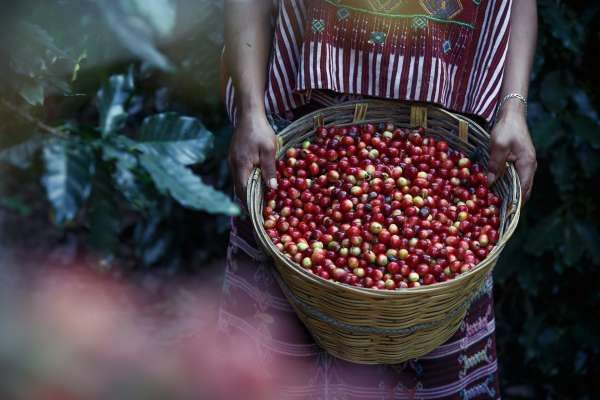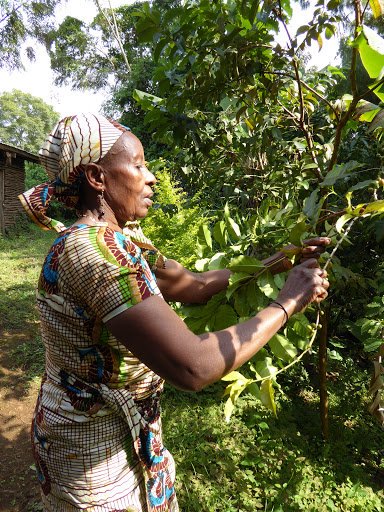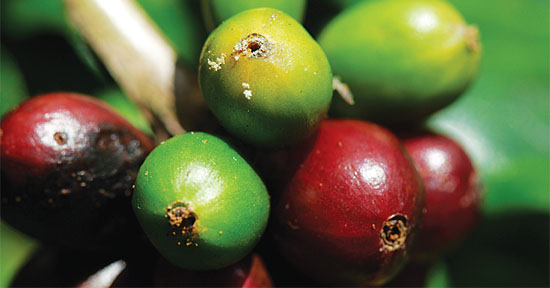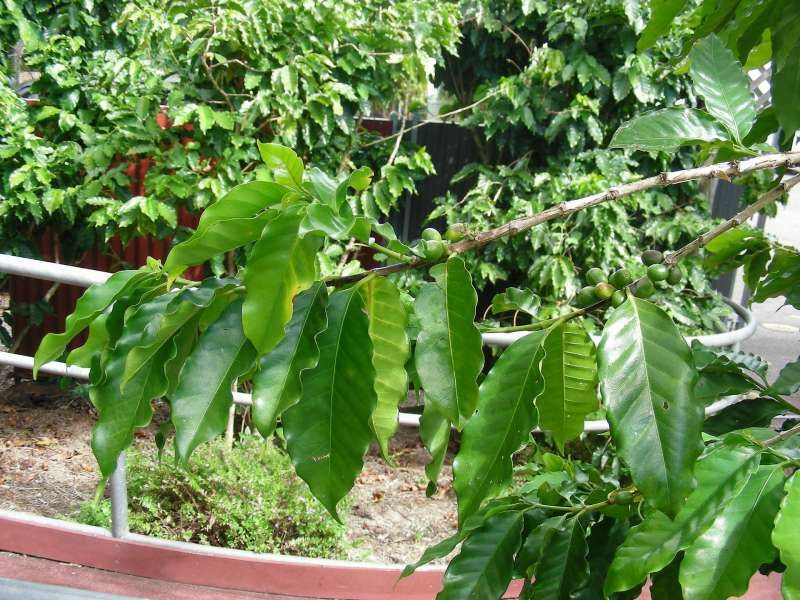Coffee bark beetle climbing! Climate change! There may be a global shortage of 180 million bags of coffee beans in 2050.
Professional coffee knowledge exchange more coffee bean information please follow the coffee workshop (Wechat official account cafe_style)
Many people start the day with a cup of mellow coffee every morning, but with global warming and extreme weather such as droughts and super hurricanes becoming more frequent, more than half of the world's coffee bean production will be severely affected. According to the nonprofit World Coffee Research, coffee beans will be in short supply by 2050, when there will be a shortage of 180 million bags of coffee beans.

Climate change aggravates coffee bean production will decrease
According to a 2016 report by Australia and New Zealand Fair Trade Organization (Fairtrade Australia New Zealand), after unusually high temperatures and high-altitude rainfall, Central America was hit by coffee camel rust (Hemileia vastatrix) in 2012, resulting in $500m in crop damage and nearly 350000 workers lost their jobs; the Central American country of Costa Rica (Costa Rica) suffered from drought and frequent storms, and many farmers gave up growing coffee beans and switched to oranges.

Coffee bark beetle (Hypothenemus hampei) was originally only found in coffee plantations below 1500 meters above sea level, but the extreme climate has changed this situation: due to abnormal hot weather and high-altitude rainfall, coffee bark beetles have also appeared in high-altitude coffee plantations in Indonesia and Tanzania in Asia. The elevation of coffee bark beetles on Mount Mount Kilimanjaro, the highest mountain on the African continent, is also 300m higher than in the last century.
Greg Meenahan, partner director of World Coffee Research, said: "demand for coffee is expected to double by 2050, and if we don't do anything, more than half of the world's areas suitable for growing coffee beans will become unsuitable because of climate change. If we do not research and develop, the demand for coffee beans in 2050 will be 180 million more than our possible output value. "

Coffee bean production will be severely affected by the intensification of global climate change (taken from Pixabay)
"increasingly frequent and severe droughts are associated with disturbing feelings of failure, loss, powerlessness, increased anxiety, stress, depression and rising farmer suicide rates," said Harris Molly Harriss Olson, chief executive of the Fair Trade Organization of Australia and New Zealand.
Try to grow "anti-climate change" coffee trees in response to the warming crisis
In response to the impact of global warming on coffee bean production, World Coffee Research is experimenting with 35 coffee beans in 23 countries around the world to assess their growth performance in different climates. the countries involved in these trials include areas that are not usually the main producers of coffee beans, such as Australia. From 2011 to 2012, Australia produced about 1,000 metric tons of coffee beans and imported about 67,000 metric tons of coffee beans.
Graham King, a professor of botany at Australia's Southern Cross University (Southern Cross University), where scientists are testing 20 "climate change-resistant" coffee beans, said 900coffee trees will be planted in January at the Tropical Fruit Institute (Alstonville Tropical Fruit Research Station) in Alstonville, New South Wales.
Professor King said: "with the deterioration of climate change, many tropical mountain areas may become unsuitable for growing coffee beans. Australia's advantage is that there is no coffee camel rust or coffee bark beetle, nor other major pests and diseases. Compared with most (coffee beans) producing areas in the world, this is very unique. "

He said that not only is Australia free of these diseases and insect pests, but climate change may make it more suitable for growing coffee beans in more parts of Australia because of reduced frost damage in winter. However, David Peasley, an agronomist and consultant to the coffee industry, said rising temperatures could damage coffee plantations in northern Queensland, while climate change could make Australian coffee plantations more vulnerable to diseases and pests, while extreme weather could pose challenges.
Australia has the advantage of growing coffee beans, but it may still be affected by warming.
Zeta Grealy, an Australian who founded a coffee garden in 1994 in New South Wales near Queensland, says climate change has made it harder and harder to grow coffee beans: "We had great conditions, a wonderful microclimate for coffee beans, which used to look like a rainforest, but now the vegetation is very sparse." There used to be 2 meters of rainfall here, but less than 1 meter in 2018. "

A coffee garden in northern Queensland, Australia (from Pixabay)
Greeley said that last year there were many overripe and completely immature coffee beans, which produced poorly: her coffee farm usually produces 1 ton a year, but last year it produced only 19 kilograms. Greeley hopes that the current trial program will succeed in identifying coffee varieties that can cope with less rainfall.
END
Important Notice :
前街咖啡 FrontStreet Coffee has moved to new addredd:
FrontStreet Coffee Address: 315,Donghua East Road,GuangZhou
Tel:020 38364473
- Prev

Luckin Coffee appoints former Standard Chartered Bank executive director as CFO, saying he is good at financing and mergers and acquisitions.
Professional coffee knowledge exchange more coffee bean information Please follow the coffee workshop (Wechat official account cafe_style) shortly after announcing the 2019 development plan, Luckin Coffee made new adjustments in the company's personnel structure. Luckin Coffee announced the appointment of Reinout Schakel as the company's chief financial officer and chief strategy officer, reporting to CEO Qian Zhiya. Lucky Coffee side
- Next

Luckin Coffee will contract your lunch on the new Boss Lunch! What kind of lunch does Luckin Coffee have?
Professional coffee knowledge exchange more coffee bean information please follow the coffee workshop (Wechat official account cafe_style) # Luckin Coffee is new, BOSS lunch # after more than 100 days of meticulous preparation, luckin coffee launches a new category of BOSS LUNCH, 4 delicacies will be delivered to your table today in Beijing / Shanghai / Hangzhou / Nanjing / Suzhou / Tianjin.
Related
- What brand of black coffee is the most authentic and delicious? what are the characteristics of the flavor of the authentic Rose Summer Black Coffee?
- Introduction to the principle and characteristics of the correct use of mocha pot A detailed course of mocha pot brewing coffee is described in five steps.
- Which is better, decaf or regular coffee? how is decaf made?
- How much is a bag of four cat coffee?
- How about four Cat Coffee or Nestle Coffee? why is it a cheap scam?
- Which is better, Yunnan four Cats Coffee or Nestle Coffee? How about cat coffee? is it a fake scam? why is it so cheap?
- How about Cat Coffee? what grade is a hoax? which instant coffee tastes better, four Cat Coffee, Nestle Coffee or G7 coffee?
- Process flow chart of coffee making-Starbucks coffee making process what coffee tastes good at Starbucks
- The top ten best coffee beans in the world Rose summer coffee or Tanzanian coffee tastes good
- Yunnan four cat coffee is good to drink?_four cat coffee is a big brand? four cat blue mountain coffee is fake?

